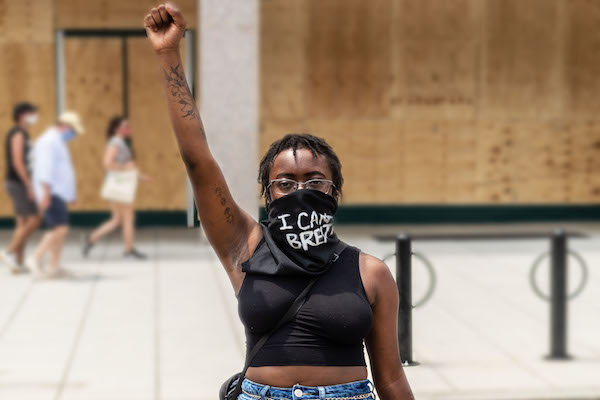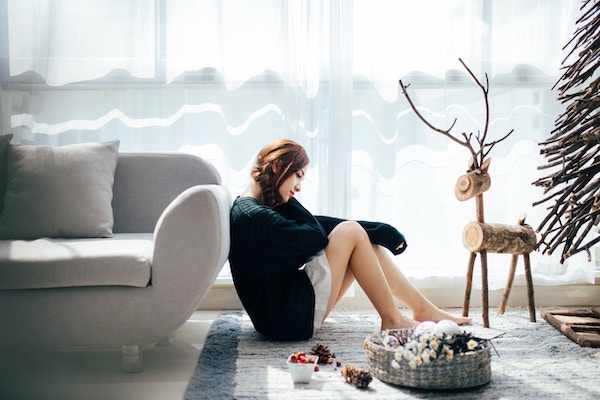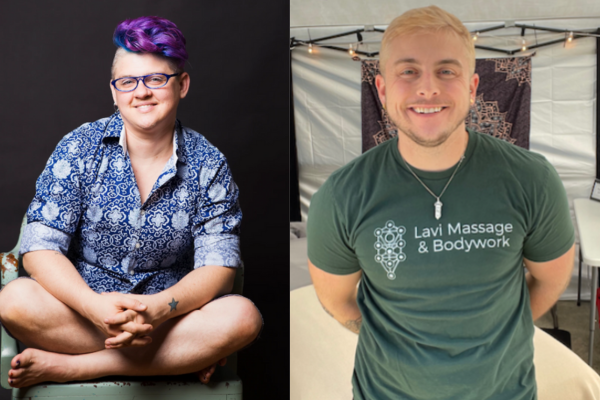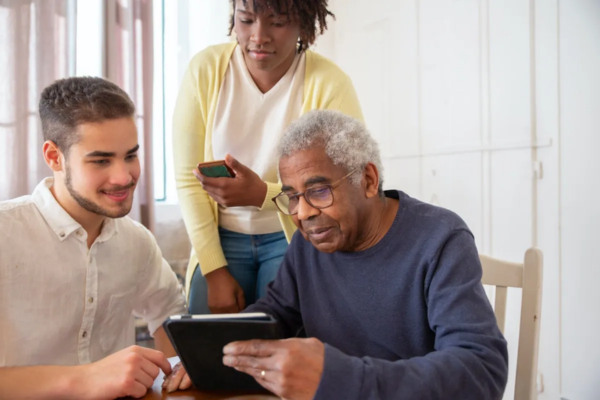
Photos: Washington, D.C. Black Lives Matter Protest
June 8, 2020
10 Things For Your Listening, Reading, and Viewing Pleasure During Queerantine Pt. 3
June 11, 2020In the last two weeks, the nation has seen monumental, peaceful protests for racial justice erupt as a response to the horrific deaths of George Floyd, Ahmaud Arbery, Breonna Taylor, Tony McDade, and many other Black people across the country. And this has all taken place concurrent with a dangerous health pandemic that has killed more than 110,000 Americans and disproportionately affected people of color.
According to Dr. LaNail Plummer-Marcano, CEO of Onyx Therapy Group, “We are in a time where we are more sensitive to everything we are sensing, to include what we see, hear, touch, and feel. So our brains think we are in survival mode.”
This hurt, sadness, anger, frustration, and other similar feelings Black people are experiencing are unfortunately nothing new. This hurt entails years of generational trauma, social neglect, and systemic disregard.
With this in mind, we spoke with Dr. Plummer-Marcano for advice on some of the best self-care practices for Black queer folks during this health and racial pandemic.
Body and Mind
Pay attention to what you’re drinking and eating. Our happiness is stored in our gut. Physiological studies suggest that dopamine and serotonin mechanisms (hormones responsible for our happiness) are important in the regulation of gastrointestinal motility. Since COVID-19, there has been an increase of alcohol intake and eating. There’s nothing wrong with an adult beverage and a pie on the side, but take notice of how it makes you feel. Does one type of alcohol have you drunk dialing your ex and not feeling like yourself? Remember, alcohol can cause depressive symptoms, so look into reducing the amount of drinks you have each week and keep track of what foods make you sluggish.
Get fresh air. Go for a walk, take a run, or just go outside for a breather. Dr. Plummer-Marcano recommends keeping your windows open at least 20 minutes per day to bring fresh oxygen into your home. Plants can also make a great addition since they create oxygen and can be a form of self-care, as you water, prune, and talk with them.
Find connection with like-minded folks. As we’ve been quarantined, we’ve been inundated with negative news and images, in addition to being subjected to a racist and homophobic administration. We don’t have the consistency of our self-affirming spaces to balance things out. Make sure you take time to connect with your friends over the phone or video chat and remind yourselves of your strength and greatness. You are not alone.
Reconnect with childhood past times. Remember those coloring books or games you used to play as a child? They can help increase nostalgic memories, which, in turn, create comfort and peace. Taking a trip down memory lane can bring much-needed joy.
Social Media
Reduce your time on social media. Be mindful of the time you spend on social media. The recommended time is no more than three hours per day. It’s important to protect your mind because what you pick-up neurologically transpires to your thoughts and then to your behaviors.
Be mindful of what you’re saying and how you say it. Ask yourself if you want to vent or advocate on Facebook and Twitter. To advocate is to be very intentional. When advocating, there is a level of education and planned thought. Venting is purging and can be impulsive and/or cathartic. There is nothing wrong with venting because sometimes we need that. However, try to take a step back and think, do I want to purge and vent, or do I want to teach and educate? This simple question to yourself will help you determine what to say and when. It will also protect your energy because you will be intentional and in control.
Work
Try shortening your workday. It’s a fact that many “essential workers” are Black and Brown people. We see you and appreciate you. While you’re taking care of us, make sure you look for ways to shorten your workdays, even if it’s jut an hour or two. Take your “sick” leave, ask for work flexibility, and advocate for “self-care breaks” throughout the day. Do it for you.
Reduce Zoom calls. There is a whole science behind that fact that video calls are not good for our brains and bodies. Video calls make it seem as if we are having “real” interpersonal interactions because we can see and hear the other person. However, we are missing the element of energy. Our body is used to “feeling” the other person via energy exchange, touch, or smell.
Mental Health
Interview your therapist. As a Black queer person, it is imperative you find the right therapist, one who fits your needs and makes you feel comfortable. As Black people, many of us were taught to keep our secrets in-house, and this is more true for queer people who have had to hide their identities for so long. Even though we may be used to judgment, we are even more sensitive to it because the risks and implications are greater for us. Since therapy is supposed to be your safest place, free of criticism and judgment, be sure to interview your therapist to make sure they’re a good fit. Ask the right questions: Do you have a history working with LGBTQ people? What are your thoughts on intersectionality? Do you have history working with cultural intersections? Some therapists will wind up asking the client about things, “Oh, I’ve never heard about that. What is that?” It’s not the client’s job to teach the therapist. You deserve better.
These are just a few things you can do this week to maintain your self-care and your mental health. The fight is not over, and we need you.
Join us on Tagg Magazine’s Facebook page on Thursday, June 11 at 4 p.m. EST as we chat with Dr. LaNail Plummer-Marcano about these self-care tips and other mental health essentials during this time.





